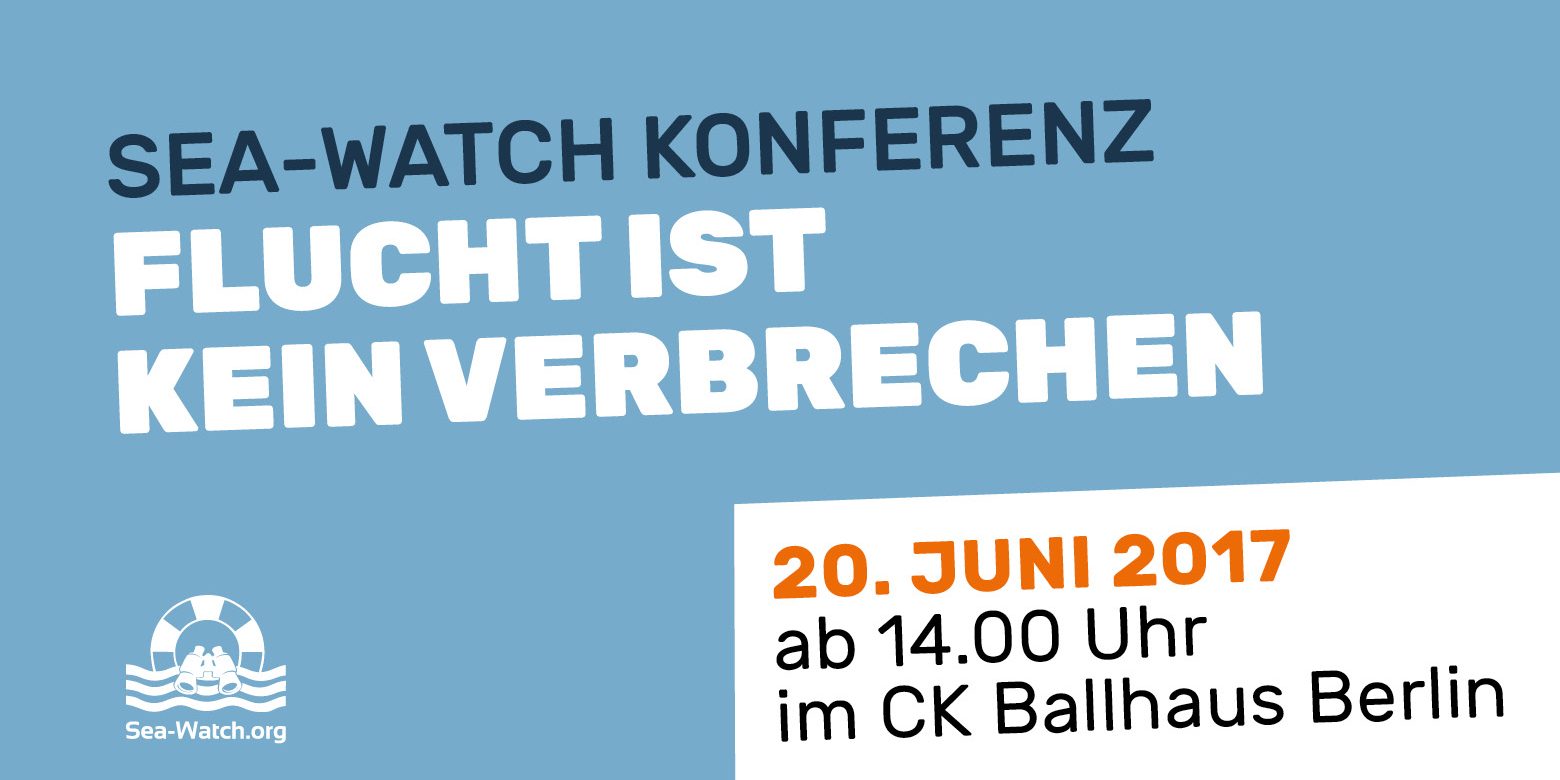The European Union has dedicated itself to keeping migrants at arm’s length – whatever the price. The central Mediterranean is the setting for this policy of isolation, which has already claimed the lives of 1,808 people this year alone. Without civil sea rescue organisations like Sea-Watch, the death toll at the borders of Europe would be far higher. This coming week the European Council will meet in order to discuss the situation at Europe’s borders. Amongst other topics, they will assess “progress on measures taken to address the Central Mediterranean route”, including the deal with Turkey and the training of the Libyan coastguard. Last month, members of this EU-financed coastguard repeatedly employed violence against refugees and migrants. During an illegal ‘forced return’ documented by Sea-Watch on 10th May, they endangered not only refugees and migrants in crowded boats but also the Sea-Watch crew.
We need a clear public position by our politicians against human rights violations. We need support in Search and Rescue operations. On World Refugee Day (20th June) we would therefore like to invite you to join us for an open dialogue at our conference in Berlin. We are looking forward to the discussions with our speakers:
Dr. Violeta Moreno-Lax is a Lecturer in Law at the Queen Mary University of London, specialising in asylum and migration law. She has published extensively in the areas of international and European refugee and migration law, including the rights of migrants at sea, the situation in the Mediterranean and EU asylum. For this reason, her academic research has enormous relevance for the work of organisations such as Sea-Watch. Previously she was a Lecturer in Law at the Universities of Liverpool (2012-13) and Oxford (2011-12) and held visiting positions at the Universities of Oxford (2010-12), Nijmegen (2009-10), and The Hague Academy of International Law. She is also EU Asylum Law Coordinator at the Refugee Law Initiative of the University of London, Co-Chair of The Refugee Law Observatory, Convener of the Society of Legal Scholars (SLS) Migration Law Section, as well as a member of the Steering Committee of the Migration Law Network.
Captain Stefan Schmidt first came to prominence when he rescued 37 refugees from drowning with his ship in 2004 and was thereafter put on trial by the Italian authorities. Five years later Captain Schmidt and the former chairman of ‘Cap Anamur’ Elias Bierdel were finally acquitted. Since 2011 Schmidt has been working in a voluntary capacity as a refugee, asylum and migration representative for the regional government of Schleswig-Holstein. He still advocates for maritime rescue missions by aid organisations. As a co-founder of the NGO Borderline-Europe (human rights without borders) he supports the networking of European initiatives, advocacy work on a national and EU-wide level, as well as the extensive education of the public.
Aurélie Ponthieu is a humanitarian specialist on refugees and migration for Doctors Without Borders/Médecins Sans Frontières (MSF). For many years she has supported the non-governmental organization in the form of analysis, advisory and advocacy work. Through journalistic publications she educates people about the humanitarian catastrophe at the borders of Europe and provides political analysis, as well as scientific and practical expertise about several countries in crisis (such as on Huffington Post and the MSF blog). Aurélie Ponthieu also uses interviews to inform people about the positions and the work of MSF, including calls to establish safe passage for migrants and refugees.
The native Kenyan Elizabeth Ngari co-founded the initiative “Women in Exile” in 2002, which fights for the political demands of refugees from a feminist perspective. It stands for the empowerment of and by refugees, and is meant to close a gap where a platform for women-specific issues was previously missing. Women frequently experience a double discrimination – as asylum seekers and as women. That is why it is particularly important for female refugees to know their rights, Ngari says. Women in Exile views themselves as a link between women’s and refugee movements. They organize seminars and workshops on women’s rights, and also provide practical assistance for women to find their place in society.
Father Mussi Zerai‘s role in helping refugees and migrants is unique: it is his telephone number that people who are fleeing call in moments of need, and he is often their last hope. Currently these calls, which he receives around the clock, come mostly from the Mediterranean. He then immediately contacts the Italian authorities, who have estimated that he has been involved in saving several thousand people. His commitment also inspired the founding of the “Alarmphone”, a 24-hour emergency call service provided by people all over Europe. The Eritrean, who is now living in Italy and Switzerland, is holder of the Human Rights Award 2016 by PRO ASYL and was nominated for the Nobel Peace Prize in 2015 for his engagement.
Dr. Frank Dörner has been active in the humanitarian crisis in the Mediterranean since 2015 as a member of the board of Sea-Watch e.V and as a medical practitioner. For decades, Dörner has combined his experiences as a doctor with his engagement for politics: in the 1990s he founded the Berlin Medical Office for Refugees. Before coming to Sea-Watch, he was active in humanitarian projects with Doctors Without Borders, first as a doctor on missions and then as project leader, country coordinator and finally CEO of the German section of the organisation for six years in Berlin. He spent long periods in Sudan, Myanmar and Guatemala and in November 2014 was active during the Ebola epidemic in Sierra Leone.
There is no entrance fee. Thank you for registering with konferenz [at] sea-watch.org by Friday!











